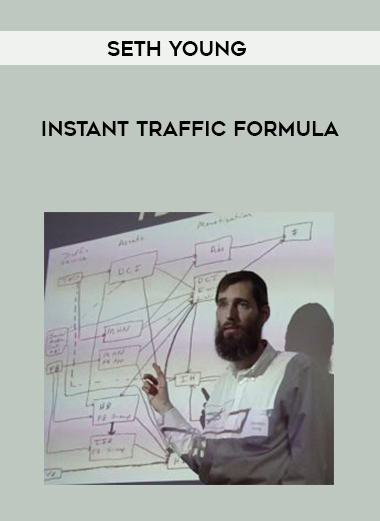
Connectedness as a Biological Imperative: Trauma Through the Lens of the Polyvagal Theory
Salepage : Connectedness as a Biological Imperative: Trauma Through the Lens of the Polyvagal Theory
Archive : Connectedness as a Biological Imperative: Trauma Through the Lens of the Polyvagal Theory Digital Download
Delivery : Digital Download Immediately
Bundles:
Conversations with Dr. Peter Levine
Faculty:
Dr. Stephen Porges | Dr. Peter Levine
Duration:
1 hour and 1 minute
Format:
Video and audio
Copyright:
Oct 19, 2021
Product Number:
POS058668
Type of Media:
Seminar on the Internet
The Polyvagal Theory is a significant scientific discovery in neuroscience, with practical applications to a new brain-body medicine that offers insights into the treatment of trauma-related mental and physical health difficulties. The idea illustrates how, through evolution, a link between the nerves that govern the heart and the face formed in the brain. The mechanisms for the “social engagement system,” which links our physical sentiments with facial expression, voice intonation, and gesture, were supplied by this face-heart connection. The Polyvagal Theory gives us a better understanding of our bodies’ innate reflexes to safety, danger, and life threats. The idea shifts the human story from a documentary (with an emphasis on events and objects) to a pragmatic hunt for safety with an implied physical need to survive (emphasizing feelings). This session will look at how physiological states, such as fight/flight, hypervigilance, dissociation, collapse, shutdown, and even syncope, can facilitate either closeness and intimacy or defense.
Stephen W. Porges, Ph.D., is an Indiana University Distinguished University Scientist and the founding director of the Traumatic Stress Research Consortium. He is a Psychiatry Professor at the University of North Carolina and an Emeritus Professor at the University of Illinois at Chicago and the University of Maryland. He has previously served as president of the Society for Psychophysiological Research and the Federation of Associations in Behavioral and Brain Sciences, and he is a past National Institute of Mental Health Research Scientist Development Award winner. He has over 300 peer-reviewed articles in anesthesiology, biomedical engineering, critical care medicine, ergonomics, exercise physiology, gerontology, neurology, neuroscience, obstetrics, pediatrics, psychiatry, psychology, psychometrics, space medicine, and drug misuse. He created the Polyvagal Theory in 1994, which ties the evolution of the mammalian autonomic nervous system to social behavior and highlights the role of physiological condition in the presentation of behavioral issues and mental diseases. The hypothesis is leading to novel therapies based on new insights into the processes that mediate symptoms in a variety of behavioral, mental, and physical illnesses. The Polyvagal Theory: Neurophysiological Foundations of Emotions, Attachment, Communication, and Self-Regulation (Norton, 2011), The Pocket Guide to the Polyvagal Theory: The Transformative Power of Feeling Safe (Norton, 2017), and Clinical Applications of the Polyvagal Theory: The Emergence of Polyvagal-Informed Therapies (Norton, 2017) are his books (Norton, 2018). He is the author of the Safe and Sound ProtocolTM, a music-based intervention used by over 1400 therapists to increase spontaneous social interaction, hearing sensitivities, language processing, and state management.
Speaker Information:
Dr. Stephen Porges has financial ties to Indiana University Bloomington and the University of North Carolina. He is a published author with royalties. PESI, Inc. pays Dr. Porges a speaking fee, book royalties, and recording royalties. He earns a royalty as a scientific advisor to Integrated Learning Systems/Unyte. All relevant financial ties to ineligible groups have been severed.
Dr. Stephen Porges is a member of the American Psychological Association, the Association for Psychological Science, and the Society for Psychophysiological Research, among other organizations.
Dr. Peter Levine is a doctor of medical biophysics and of psychology. He created Somatic Experiencing® (SE), a naturalistic body-awareness approach to trauma therapy that he teaches all over the world. Dr. Levine is also the founder of the Foundation for Human Enrichment and worked as a stress consultant for NASA during the space shuttle’s construction.
Dr. Levine is a popular author who has written books such as Healing Trauma, Sexual Healing, and Waking the Tiger. He also co-wrote Trauma Through a Child’s Eyes and Trauma-Proofing Your Children with Maggie Kline. In an Unspoken Voice: How the Body Releases Trauma and Restores Goodness, his most recent book, is a tribute to his lifetime inquiry of the relationship between evolutionary biology, neurology, animal behavior, and more than 40 years of clinical expertise in trauma recovery.
Dr. Levine is a Senior Fellow at Meadows Behavioral Healthcare and received a Lifetime Achievement Award from the United States Association for Body Psychotherapy (USABP) in 2010.
Speaker Information:
Financial: Somatic Experiencing® was created by Peter Levine. He is the founder and Senior Advisor of The Meadows Addiction Treatment Center, as well as the Foundation for Human Enrichment. PESI, Inc. provides Dr. Levine with a speaking fee. He has no relevant financial links with groups that are ineligible.
Peter Levine belongs to the American Psychological Association, the Humanistic Psychological Association, and the International Society for Traumatic Stress Studies.
More from Categories : Everything Else












